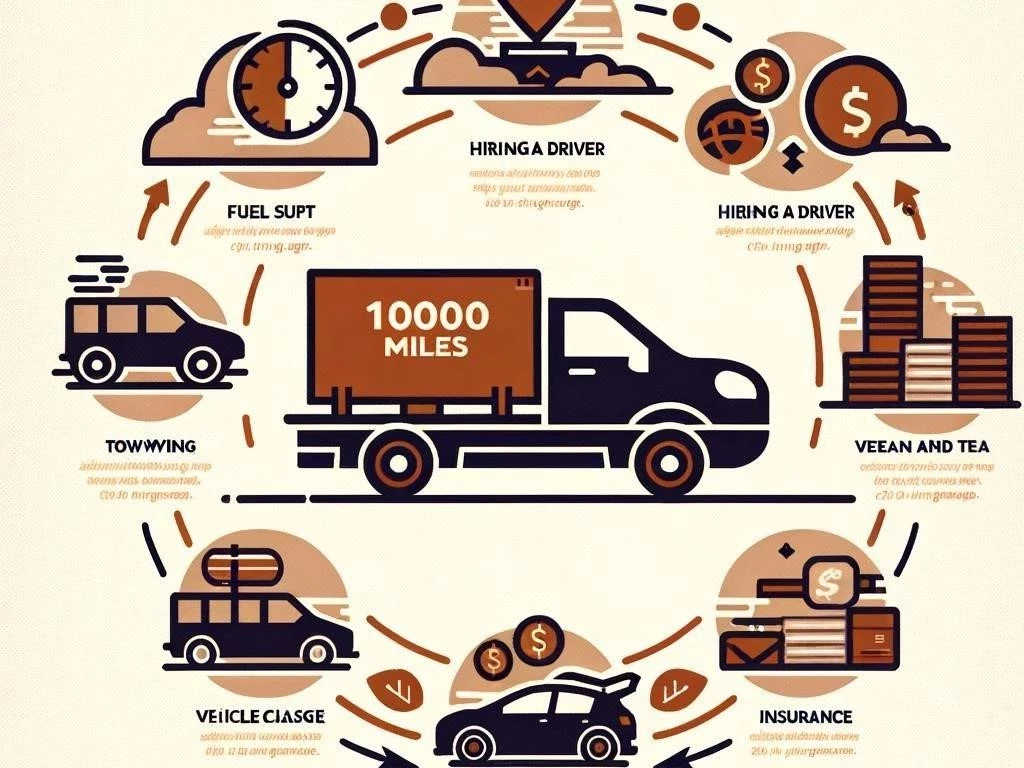How Much to Ship a Car 1000 Miles
Shipping a car 1000 miles typically costs between $800 and $1,200, depending on factors like vehicle type, transport method, and shipping services chosen;
Understanding Vehicle Shipping Costs
Vehicle shipping costs encompass multiple factors, including distance, vehicle condition, transport type, timing, and additional services, affecting overall shipping rates significantly.
What Affects Shipping Costs?
Several factors impact the shipping cost when moving a vehicle over long distances. First, the type of transport method chosen significantly influences the price; open transport is generally cheaper than enclosed transport. Next, the vehicle’s size and weight play a crucial role in determining shipping rates, as larger vehicles often incur higher costs. Additionally, the distance between pick-up and delivery locations affects overall transportation fees. Timing can also be a factor; peak seasons may lead to increased freight charges. Finally, any additional services, such as expedited delivery options or insurance, can raise the total cost of vehicle shipping, making it essential to consider these aspects when calculating expenses.
Types of Shipping Services Available
When considering vehicle shipping, various types of services are offered to cater to different needs. Open transport is the most common and cost-effective option, where vehicles are transported on open trailers, exposing them to the elements. Enclosed transport provides added protection, transporting vehicles in fully enclosed trailers, ideal for luxury or classic cars. Additionally, door-to-door service offers convenience by picking up and delivering vehicles directly to specified locations, while terminal-to-terminal service requires clients to drop off and pick up their vehicles at designated terminals. Expedited shipping is also available for those needing quicker delivery. Understanding these options helps individuals choose the best shipping service for their vehicle relocation needs.
Shipping Rates Breakdown
Shipping rates for transporting a vehicle over 1000 miles typically vary based on distance, vehicle type, transport method, and additional services selected during the process.
Factors Influencing Shipping Rates
Several key factors influence the shipping rates for transporting a vehicle over long distances. Firstly, the type of transport selected—open transport is typically more affordable than enclosed transport—impacts pricing significantly. Secondly, the vehicle’s weight and size are crucial; larger and heavier vehicles often incur higher fees due to increased space and fuel costs. The season also plays a role; demand during peak times can raise shipping rates. Additionally, the distance between the origin and destination affects transportation fees, with greater distances resulting in higher costs. Lastly, any special requirements, such as expedited shipping or insurance, can further influence the overall shipping rates for vehicle relocation.
Freight Charges and Transportation Fees
When shipping a vehicle over long distances, understanding freight charges and transportation fees is essential for budgeting. Freight charges typically encompass the cost of the actual transportation service, which varies based on factors like distance, vehicle type, and shipping method. These charges may also include fuel surcharges, which fluctuate based on fuel prices and can impact overall costs. Transportation fees can include additional services such as loading and unloading, insurance, and specialized handling for luxury or vintage vehicles. It’s crucial to request detailed quotes from transport companies to get a comprehensive understanding of all applicable charges, ensuring transparency and avoiding unexpected expenses during the vehicle shipping process.
Long Distance Shipping Options
Long distance shipping options for vehicles include open transport, enclosed transport, door-to-door service, and terminal-to-terminal shipping, each offering unique benefits and pricing structures.
Open Transport vs. Enclosed Transport
When considering vehicle shipping over long distances, the choice between open transport and enclosed transport is crucial. Open transport is the most cost-effective option, where vehicles are loaded onto open trailers, exposing them to weather elements during transit. This method is suitable for standard vehicles and typically results in lower shipping costs. Conversely, enclosed transport provides superior protection, shielding vehicles from environmental factors, debris, and potential damage. This option is ideal for luxury, classic, or high-value cars, albeit at a higher price. Ultimately, the choice depends on budget, vehicle type, and the level of protection desired, ensuring that customers can select the best transport method for their needs.
Choosing the Right Vehicle Carriers
Selecting the right vehicle carriers is essential for a successful shipping experience. Begin by researching various transport companies, focusing on their reputation, reliability, and customer reviews. It’s crucial to verify their licensing and insurance, ensuring they meet industry standards and regulations. Request multiple auto shipping quotes to compare prices and services offered, allowing for informed decisions based on your budget. Additionally, consider the carrier’s experience with your specific vehicle type, whether it’s a standard car or a luxury model needing special handling. Finally, inquire about delivery timelines and flexibility in scheduling, ensuring the chosen carrier aligns with your transportation needs and expectations for a smooth vehicle shipping process;
Getting Auto Shipping Quotes
Obtaining auto shipping quotes allows you to compare prices and services from various transport companies, helping you select the best option for your vehicle relocation.
How to Compare Shipping Quotes
When comparing shipping quotes for vehicle transport, it’s vital to look beyond just the price. Start by gathering quotes from multiple transport companies, ensuring each includes comprehensive details about services provided. Compare the types of transport available—open versus enclosed—and check for additional fees, such as fuel surcharges or insurance costs. Evaluate delivery timelines, as some companies may offer expedited services at a premium. Additionally, consider the reputation and customer reviews of each carrier, as reliability is crucial for peace of mind. Finally, ask about any discounts or promotions that may apply, ensuring you obtain the best value for your long-distance vehicle shipping needs.
Understanding Mileage Costs
When shipping a vehicle, understanding mileage costs is essential for accurate budgeting. Mileage costs typically refer to the expenses incurred based on the distance the vehicle needs to travel. For long-distance shipping, such as 1000 miles, transport companies often calculate costs using a per-mile rate, which can vary depending on factors like vehicle type and shipping method chosen. Additionally, some carriers may include base fees that cover the first portion of the distance, while others may have flat rates for specific mileage brackets. It’s crucial to ask companies for detailed breakdowns of their mileage costs to ensure transparency and avoid unexpected charges throughout the shipping process.

Car Relocation and Delivery Options
Car relocation and delivery options include door-to-door service, terminal-to-terminal transport, and expedited shipping, allowing flexibility to meet individual customer needs and preferences.
Interstate Transport Considerations
When planning interstate transport for vehicle shipping, several considerations come into play; First, ensure that the transport company is licensed and authorized to operate across state lines, adhering to all regulations. Understanding state-specific laws regarding vehicle transport is crucial, as some states may have unique requirements or restrictions. Additionally, consider the potential impact of weather conditions on shipping times, as adverse weather can cause delays. It’s also essential to discuss insurance options with the carrier to protect your vehicle during transit. Lastly, clarify the delivery schedule, as interstate shipping may involve longer timelines than local transport, ensuring your expectations align with the carrier’s capabilities.
Finding Reliable Transport Companies
Finding reliable transport companies for vehicle shipping requires thorough research and careful consideration. Start by seeking recommendations from friends, family, or online forums, as personal experiences can provide valuable insights. Additionally, read customer reviews and ratings on reputable websites to gauge the company’s reliability and service quality. Verify the transport company’s licensing and insurance credentials to ensure they meet industry standards. Request quotes from multiple companies to compare prices and services offered, but be cautious of significantly low rates, which might indicate subpar service. Finally, engage in direct communication with potential carriers, asking questions about their experience, processes, and customer service to assess their professionalism.
Understanding the costs and options for shipping a car 1000 miles is essential. Careful planning ensures a smooth vehicle relocation experience while minimizing unexpected expenses.








